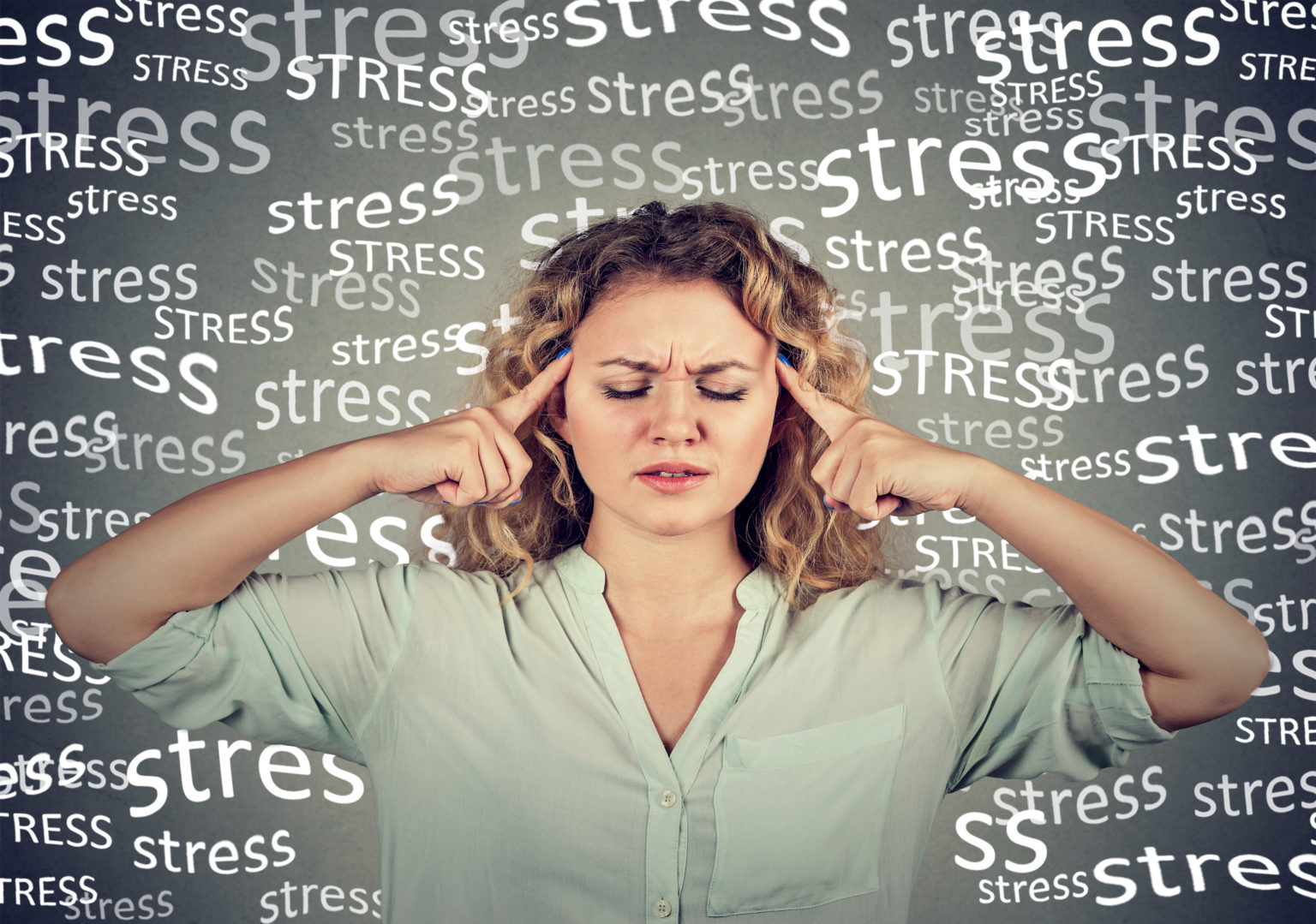
Anxiety and jaw clenching are strongly associated in the medical literature. One of the primary physical manifestations of anxiety is muscle tension. This often occurs in the jaw muscles in the form of clenching or grinding, a behavior sometimes called “bruxism”. Anxiety-related jaw clenching may also cause or exacerbate certain TMJ disorders. Here we explore the connection between anxiety and jaw clenching and then discuss how to stop clenching your jaw.
It’s important to understand the difference between stress and anxiety. People experience stress when they feel that their environment is presenting challenges that they don’t have the resources to handle. The physical manifestations of stress include increased cortisol levels, increased blood pressure, and other responses associated with the “fight or flight” response. Short term stress can be a healthy reaction to physical and emotional challenges, but when stress becomes chronic, it can lead to significant health problems.
Anxiety disorders and chronic stress are related in that the body’s response to both is nearly identical. The difference is that in anxiety disorders, it is the mind that perpetuates the stress response, not the environment. Put another way, stress is a reaction to external threats, whereas the origin of anxiety is internal or psychological. Nevertheless, even though the origin of anxiety is internal, the stress response in the body is the same.
People with anxiety disorders exhibit worry or excessive anxiety that is difficult to control and affects their ability to function in important areas of life. In anxiety disorders, this excessive worry lasts for months at a time. People with anxiety disorders can experience restlessness, fatigue, decreased concentration, irritation, muscle tension, or sleep disturbance.
The muscle tension that people experience with anxiety is frequently in the form of jaw clenching. Anxiety and jaw clenching appear to be connected in the brain via the neurotransmitters that are released. Serotonin, norepinephrine, and dopamine regulate mood, but they also regulate movement. Indeed, neurotransmitter imbalance is the basis for several movement disorders. Bruxism itself is a form of movement disorder and medical research is now indicating that bruxism may be driven by neurotransmitter imbalance.
An important finding along these lines is that the use of certain selective serotonin reuptake inhibitors (SSRIs) and serotonin norepinephrine reuptake inhibitors (SNRIs) can cause jaw clenching in some people. If you are taking an SSRI or SNRI for anxiety and you started experiencing jaw clenching after you started medications, let your doctor know. It may be possible to switch to an antidepressant that is not associated with bruxism.
The connection between anxiety and jaw clenching is well established in the medical literature. The muscle tension and hyperactivity in response to prolonged anxiety is the basis for both bruxism and certain painful TMJ disorders.
Bruxism is defined as constant or repetitive activation of the jaw muscles. Jaw clenching and teeth griding are examples of bruxism. Numerous studies have documented a strong association between anxiety disorders and bruxism. Bruxism is a risk factor for the development of chronic TMJ disorders.
Chronic TMJ disorders can involve either primarily the jaw joint or the jaw muscles. It is muscle-based TMJ disorders and TMJ-related headaches that are most associated with jaw clenching and anxiety. “The medical evidence of the association between anxiety and TMJ disorders is strong. Furthermore, people with anxiety tend to have more severe TMJ pain than those that do not”, explains Bradley Eli, an orofacial pain specialist.
Anxiety disorders are highly responsive to treatment. The two medical tools for treating anxiety are psychotherapy and medications.
The most successful form of psychotherapy for anxiety disorders is cognitive behavioral therapy (CBT). This is skill-based therapy, as opposed to insight-based therapy. If there are certain phobias associated with your anxiety, exposure therapy might also be appropriate.
Medications used for anxiety disorders include anti-depressants, buspirone, and various sedating drugs. The antidepressants that are regularly prescribed include SSRIs and SNRIs, so if you already have jaw clenching, you may want to avoid these medications.
The other pillar of anxiety disorder treatment is the use of self-care remedies. These include exercise, stress management, relaxation techniques, and life-style changes.
If you believe you have anxiety disorder, speak to a doctor about starting the above treatments. In the meantime, how do you stop clenching your jaw?
The best way to stop jaw clenching is to use an anterior bite guard. This is a custom fit oral splint that covers the anterior teeth but leaves the back teeth uncovered. This design significantly inhibits jaw tension and clenching. People with jaw pain from muscle fatigue and tension usually notice immediate relief when using an anterior bite guard.
Other measures that you can use to bring comfort to tense, fatigued jaw muscles include:
All of the above therapies, including the QuickSplint® anterior bite guard, are included in the Speed2Treat® Home Healing Kit. It is important to address your jaw clenching because untreated jaw tension is a risk factor for the development of chronic TMJ disorders. Start your journey toward jaw pain relief with the Speed2Treat® Home Healing Kit!
